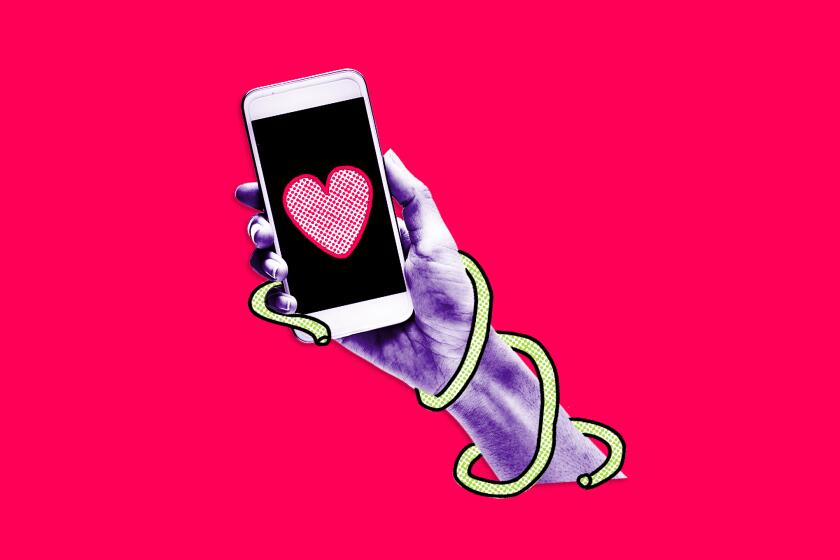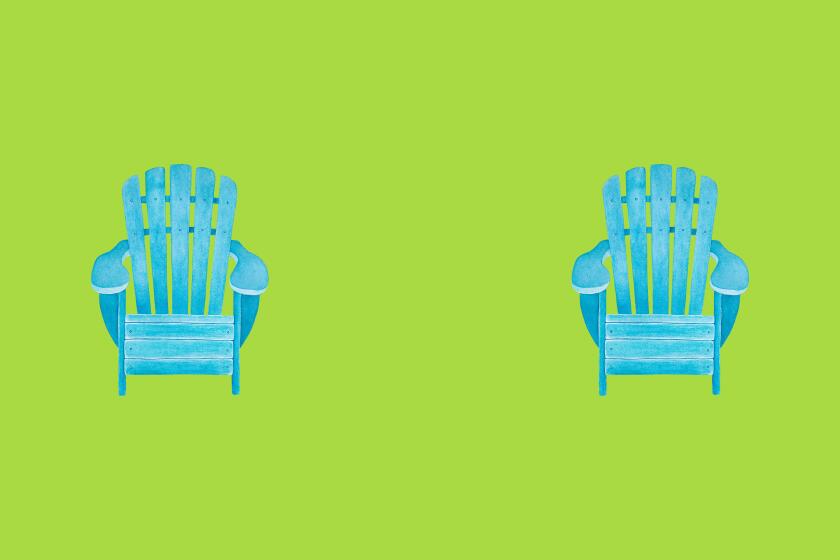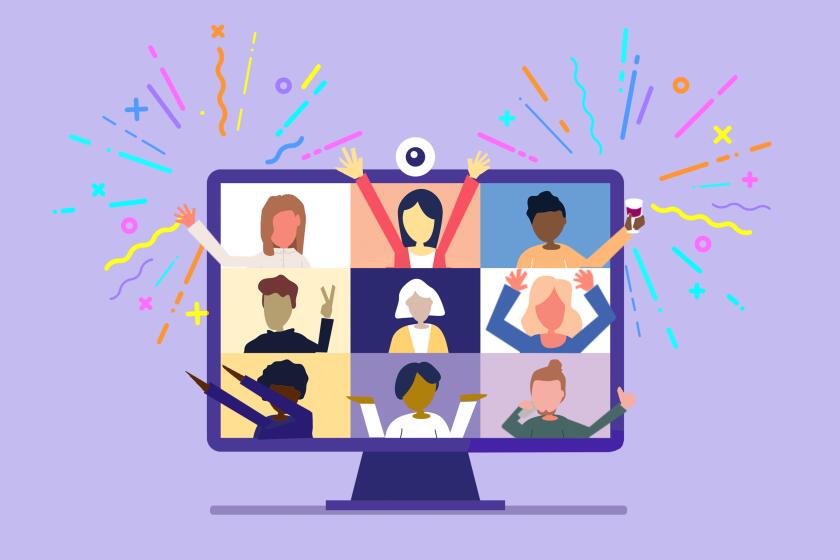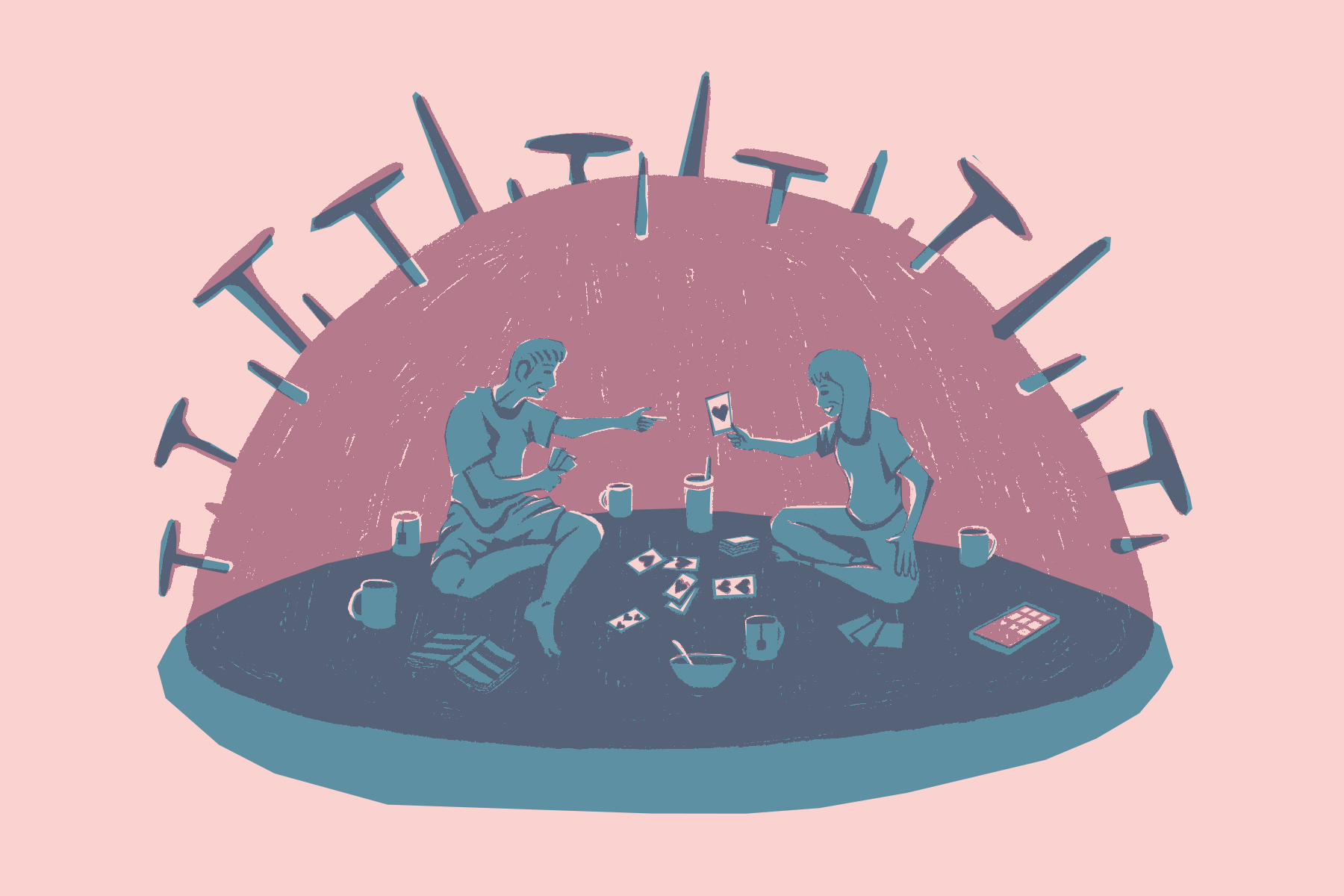The best advice for the three most common coronavirus relationship issues

Since the coronavirus pandemic started, many of us have spent an extra 40 hours per week at home with our partners. Thatâs 2,400 additional minutes in each otherâs space. Weâve picked up 97 of our spouseâs empty seltzer cans and conjugated hundreds of French verbs for our children, since school is closed and weâre now school. But whoâs counting?
We are. And that counting â whether itâs the number of times you did the laundry or how many Zoom meetings were interrupted by a child in underpants asking for Goldfish â kindles the flame that can reduce a relationship to ashes.
The national Centers for Disease Control and Prevention have advice about how we can defend our bodies, but whatâs going to protect the health of our relationships? Soap and water wonât work: Divorce filings have spiked in China, and weâre now seeing similar reports in New York City. Weâd be kidding ourselves to think that this isnât going to spread across the nation, even as states begin to reopen. We need to take protecting our partnerships and families as seriously as we take protecting our physical health.
L.A. dating coach Damona Hoffman tackles dating and relationship questions on her weekly podcast, âDates & Mates.â Today she shares answers to the most common questions about love in the time of coronavirus.
There are at least three main types of relationship issues coming up right now, and recognizing them may be our best protection against breakups and divorce.
Reopening tracker: Whatâs reopening now >>>
First, there are the little things that have been simmering between a couple for years, now ramped up in isolation. Your partnerâs annoying habits â like chewing loudly or not knowing a Tide pod from a potted plant, or blasting Lizzo in your living room instead of out with her friends â are amplified. Isolation can lower our distress tolerance, and we may find ourselves getting fed up faster by relatively small long-term issues that are now inescapable.
If beaches and businesses are reopening, does that mean I can visit my friends and family now? The new rules on socializing during social distancing.
Then there are issues specific to the pandemic. Suddenly, weâre facing acute financial worries, discrepancies in how partners want to practice COVID-19 safety or how quickly they want to move back out into the world, along with a profound lack of privacy. A recent poll by the American Psychiatric Assn. indicates that 40% of Americans are anxious that theyâll become seriously ill or die from COVID-19, the disease caused by the novel coronavirus. Calls to mental health hotlines have surged. We know that personal mental health problems inevitably spill over into relationships, taxing partnerships further.
A recent paper in the journal Lancet points out that humans have a long history of breaking down emotionally during quarantines and pandemics. Symptoms of isolation-induced distress may include emotional detachment from others, irritability and exhaustion. All can poison relationships. âI want outâ is something New York City-based clinical psychologist Stephanie Newman and others who treat couples say they are hearing from patients. Feeling trapped by a seemingly inescapable and interminable pandemic, many of us make a conceptual slide to, âif only I could escape this relationship.â
The coronavirus pandemic is taking its toll on all of us, inside and outside the bedroom. We asked sexologist Shan Boodram to help us figure out: What is normal?
What can you do about it? First, knowing that relationship distress is common under extraordinary circumstances can help you reframe impossible stressors as temporary issues that may abate or at least feel more manageable as life returns to a semblance of normal. Giving yourself a 60-day pass, a buffer in which you make no big decisions about your relationship, can cut down on feelings of stress and urgency about doing something about issues, other than abuse (which cannot and should not be put off). Far too many people assume that mental health services are not available right now and that these experiences, along with the negative effect on relationships, are inevitable. But most mental health professionals are offering telepsychiatry visits that you can take from the privacy of a walk to a nearby park or while sitting in your car.
The authors of the Lancet paper found some important factors that protected peopleâs mental health during past lockdowns. The first is making sure that you are accessing accurate health information. The second: Itâs vital to maintain personal connection. They probably should have mentioned, however, that this canât all come from your partner.
Many Americans expect their spouses to provide all the support they need in general and even more during lockdown. But itâs unrealistic to believe that a partner can meet all your social and emotional needs at any time, according to couples therapist Michele Scheinkman and other experts. âWe need separateness in order to be together in a confinement situation. Separateness means having space to work, exercise, have a routine, and to maintain relationships with others, so you maintain who you are as person,â Scheinkman added.
Physical distancing is important, but it shouldnât mean social isolation with just your partner. Make sure you are scheduling regular phone calls with friends. Plan a Zoom happy hour. Go for a walk and talk with your sister on the phone. Humans are prosocial and affiliative. We are a gregarious species and not built to interact with only one person. In fact, research tells us that having more supportive friendships is associated with more satisfying marriages, even among those who are happy with the support they get from their partner.
The age of social distancing is surprisingly social. Party ideas, pointers and more to make your next Zoom your best yet.
A third type of issue taxing partners is the ghosts of relationships past. Be mindful that when youâre talking with your partner, family members and previous partners might also be in the room, symbolically speaking. Itâs common for hostility toward people from your past or patterns from earlier in your life to come up during a fight. During confinement, without tensional outlets and distractions like getting out with friends, itâs even more likely.
Unreasonably upset that your partner is on his cellphone when you talk with him? Maybe itâs reminding you of a previous partner who used his or her cell to deliberately ignore or even betray you. Or your father, who stayed late at work and then took phone calls at home into the evening instead of playing Monopoly with you, making you feel unloved and unworthy.
That said, it is bad to be on your cellphone all the time â for both you and your partner/ship. During quarantine, weâre spending a lot of time together, but many of us arenât spending very much intentional time together. This can reduce your partner to less of a human you love and more of a loud piece of furniture that leaves dirty dishes in the sink. Make sure you are setting aside time every day to connect. Consider implementing a few hours of no cellphone time each night where you look each other in the eye and talk about your day.
The shutdown situation can be uniquely hard on married couples. Hereâs how to help your marriage survive coronavirus.
Weâre all going to be stressed individually and as couples as the pandemic drags on and then with a modified return to ânormal,â and relationships will inevitably be strained. Seltzer bottles are going to pile up, and you might find yourself yelling about how loudly your partner breathes. Remember to take care of your own mental health, spend some intentional time with your partner and avoid placing all your social needs and expectations on one person. You and your relationship may come out even better than before. Although this may be a period of intense relationship risk, itâs also a period of great relationship opportunity.
Martin (@wednesdaymartin) holds a doctorate with a focus on anthropology and is the New York Times bestselling author of âPrimates of Park Avenueâ and âUntrue.â Turban (@jack_turban) is a resident child and adolescent psychiatrist at Massachusetts General Hospital in Boston.
More to Read
Sign up for The Wild
Weâll help you find the best places to hike, bike and run, as well as the perfect silent spots for meditation and yoga.
You may occasionally receive promotional content from the Los Angeles Times.















